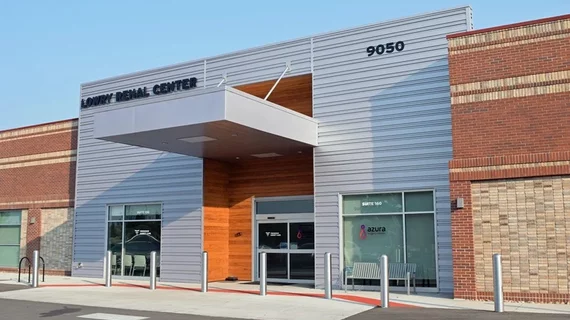Radiologists partner with other specialties to launch ‘one stop shop’ for kidney care
Radiologists have partnered with other specialists to launch a new “one stop shop” for kidney care.
The new facility is located on a busy street in Denver’s Lowry neighborhood, four miles southwest of the University of Colorado Anschutz Medical Campus. The Lowry Renal Center is a joint venture between CU’s renal division and its departments of radiology, surgery and anesthesiology.
Leaders said the freestanding outpatient center is geared toward individuals with chronic and end-stage kidney disease, many who require dialysis. Radiologists provide interventional services at the facility, with CU hoping to help patients save time and the inconvenience of traveling to the main hospital campus.
“The advantage of a center like this is that we’re focused only on dialysis patients,” interventional radiologist Ken Hirasaki, MD, who practices at the facility, said in a July 31 announcement from CU. “In the hospital setting, we’re very distracted with a lot of other patients. There are emergencies. There’s trauma. There are patients getting high level, complicated procedures all day long, and so patients who are not as acute, such as those needing dialysis maintenance, are not always prioritized like they can be in an outpatient setting.”
The 10,000-sqaure-foot facility partially opened in May to perform IR procedures, with a renal clinic planned for the space later this year. Patients who require long-term dialysis can undergo surgery at the center, with the procedure consisting of connecting a vein and artery to create an arteriovenous fistula. Interventional radiologists at the center are tasked with maintaining the fistula, troubleshooting and diagnosing any issues.
“Anytime you do a procedure repeatedly, you get really good at it,” Hirasaki said. “So, I think we can provide a higher quality of care for dialysis patients to maintain the fistula than in a hospital setting.”
As of late June, about 60 patients were receiving dialysis on-site while another 20 were doing so at home. The surgery unit sees about six patients per day, and interventional radiologists handle about 12 procedures.
Surgeon and center Medical Director Peter T. Kennealey, MD, believes the facility is crucial given a growing kidney disease population. Last year alone, the University of Colorado Hospital handled nearly 300 kidney transplants, with patients traveling from Wyoming, Montana, Nebraska and Kansas.
“These [end-stage renal disease] patients require multidisciplinary care,” Kennealey said in the announcement. “They need a nephrologist to take care of their overall healthcare, they need a dialysis access surgeon, and they need a radiologist to help maintain their accesses and deal with acute things that can happen. And that’s not to mention social workers, dieticians, and so on. So, this is a very robust center that’s filled with highly qualified, very dedicated people.”

